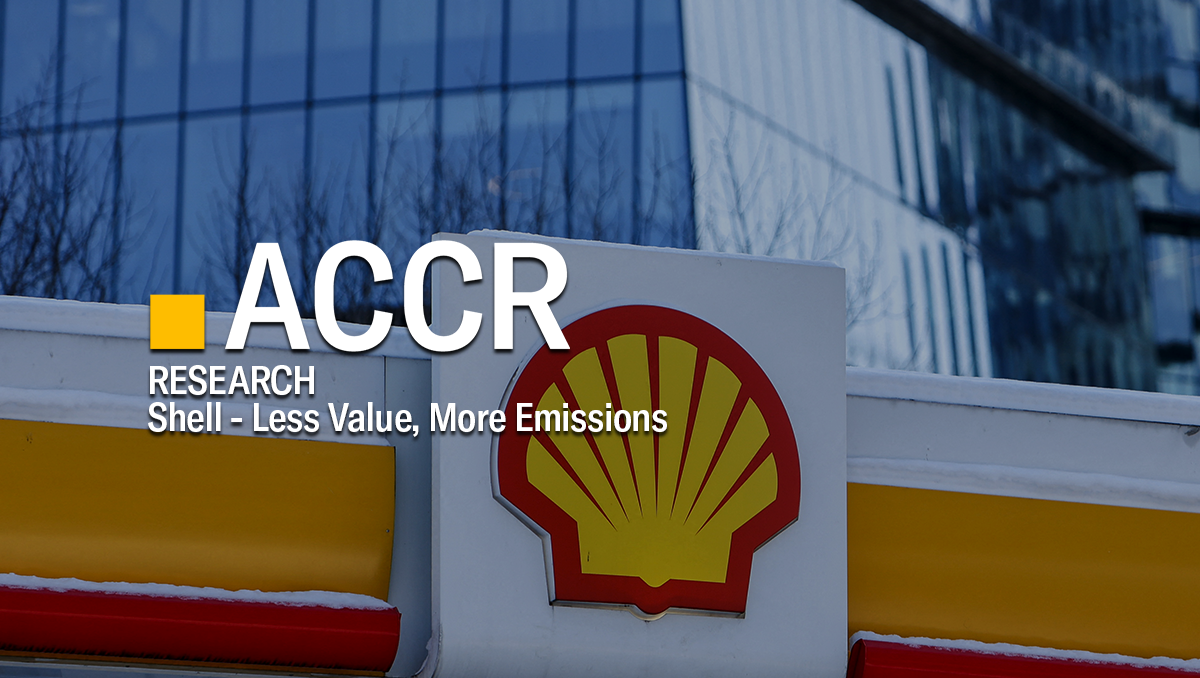Publication Shell - Less Value, More Emissions
Introduction
The release of Shell’s 2024 Energy Transition Strategy (ETS) shows the company is lowering its already weak climate ambition, putting it at odds with global momentum towards net zero goals and further exposing its investors to unnecessary risks through the energy transition.
This follows recent ACCR research, which reveals Shell is failing to disclose to investors its climate lobbying in emerging markets. By not reporting on emerging markets, Shell’s lobbying disclosures are not proportionate to its business activities. Nearly 60% of Shell’s fossil fuels production from 2024 to 2050 is expected to come from emerging markets.
ACCR has undertaken an analysis of Shell’s ETS, its LNG growth strategy, and lobbying disclosures.
Key Findings:
- Shell’s 2024 Energy Transition Strategy (ETS) lowers already weak climate ambition. It delays emissions reductions until after 2030, but gives little guidance on how post-2030 decarbonisation acceleration will be achieved.
- Shell’s Net Carbon Intensity (NCI) targets are not Paris-aligned.
- Shell’s LNG growth strategy is built on a bullish view of demand, high gas price assumptions and low investment hurdle rates when compared to peers. This increases risks of over-investment in supply, LNG price reductions, underperformance and impairments.
- A new REM policy now rewards LNG sales instead of low carbon products sales or building renewables.
- While working with customers to support their decarbonisation is central to the company’s energy transition strategy narrative, Shell’s lobbying activities seem to be promoting fossil fuels in emerging markets, and locking-in demand for fossil fuels.
Key Recommendations:
- The company aligns its capital expenditure with the goals of the Paris Agreement, immediately restricting all exploration capex and explains how any new investment in fossil fuels is consistent with a 1.5-degree scenario.
- Commodity price assumptions and hurdle rates applied to investment decisions are appropriately considered in the context of rapidly declining demand.
- Reporting of emissions is carried out on an equity basis and in line with the GHG protocol, recalculating the baseline when divestments occur.
- Require that Shell provides a global account of its material lobbying activities and critically assess whether its LNG advocacy aligns with decarbonisation goals.
View downloadable PDF of Shell - Less Value, More Emissions | 04/2024
Please read the terms and conditions attached to the use of this site.
